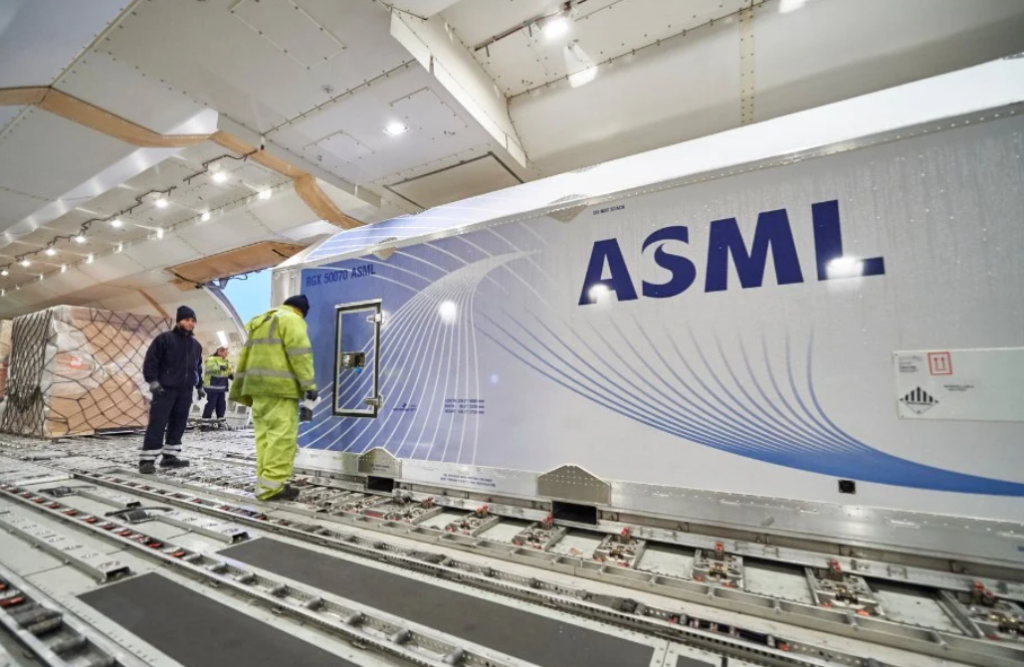ASML Holding NV, the world’s premier lithography systems manufacturer, is facing a significant setback in its exports to China due to new export control rules imposed by the Dutch government. These rules, effective from September 1, have far-reaching implications for the semiconductor industry and global technological competition.
Under these regulations, ASML now requires a license from the Netherlands government to export equipment capable of producing sub-5nm chips. ASML’s advanced deep ultraviolet lithography (DUV) tools, vital for manufacturing the latest generation of microchips, are caught in the crosshairs of these restrictions.
One of ASML’s most advanced DUV systems, the Twinscan NXT:2000i, which can create chips at the 5-nanometer process or more advanced, faces an imminent export deadline. Chinese chip manufacturers, aware of the impending restrictions, have been rushing to import these critical ASML tools before the end of 2023.

The Dutch government’s move aligns with the United States and Japan and is seen as an effort to curtail the export of specific ASML machine models to China. While the rules do not explicitly mention China, they effectively block ASML from shipping its DUV systems there without obtaining a government license.
ASML has been contending with export restrictions to China since 2019 when it was barred from selling extreme ultraviolet (EUV) lithography machines. However, the company had still been able to export DUV systems until this year, under pressure from the United States.
Starting January 1, 2024, ASML will no longer be able to ship its most advanced immersion DUV lithography system, the Twinscan 2000 series, to China. This development has prompted Chinese chip foundries to expedite their ASML tool imports, with approval from The Hague, within the remaining four months.
ASML, Europe’s largest technology firm by valuation, remains cautiously optimistic about its annual sales despite these challenges. They anticipate fulfilling existing orders until the end of this year, mitigating the potential impact on their financial performance.
The global semiconductor landscape is evolving rapidly, with these export restrictions amplifying the technological competition between nations. China’s race to secure advanced chip-making tools underscores the critical role ASML plays in the semiconductor supply chain. The impact of these developments on global technology dynamics will undoubtedly be closely monitored in the months ahead.
Related:
- ASML Faces New Restrictions on Exporting Advanced Semiconductor Technology to China
- Xiaomi dominates as China’s security camera online sales surge by 37%
- Huawei Mate 60 Pro’s 5G Kirin 9000S chip was built on 7nm SMIC process
(via)





